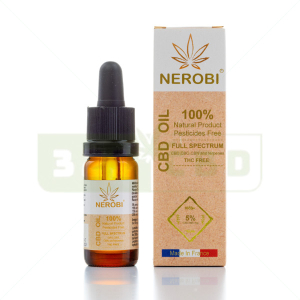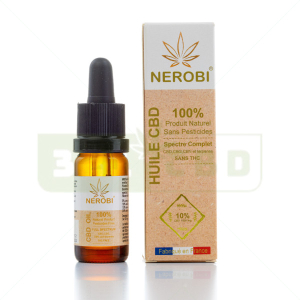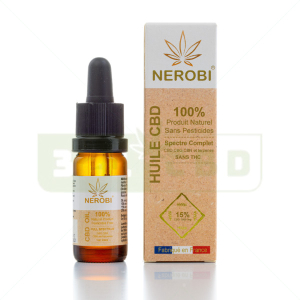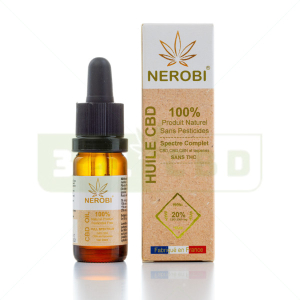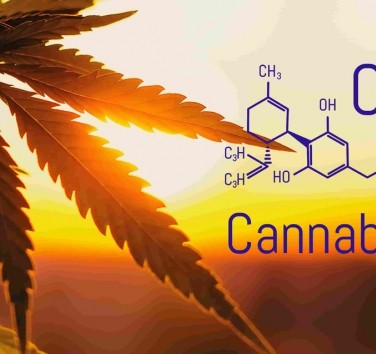Some scientific studies claim that CBD can be a natural alternative to limit the onset of diabetes and help reduce symptoms. When used properly, medical cannabis regulates the body, prevents diseases such as diabetes, reduces the risk of complications, and mitigates most of the side effects. All in a totally healthy and natural way.
For a few years now, we've known that CBD is a natural substance that is full of health benefits. Thanks to its anti-inflammatory, pain-relieving, and stress-relieving properties, CBD is already widely used to reduce stress and anxiety, restore quality sleep, and relieve most chronic pain. But more recently, scientific researchers have realized its enormous potential to treat certain diseases such as diabetes. So how does CBD work on the body in diabetes? What are its benefits? How to consume CBD to fight diabetes and stay healthy? All the answers to your questions about CBD and diabetes can be found below.
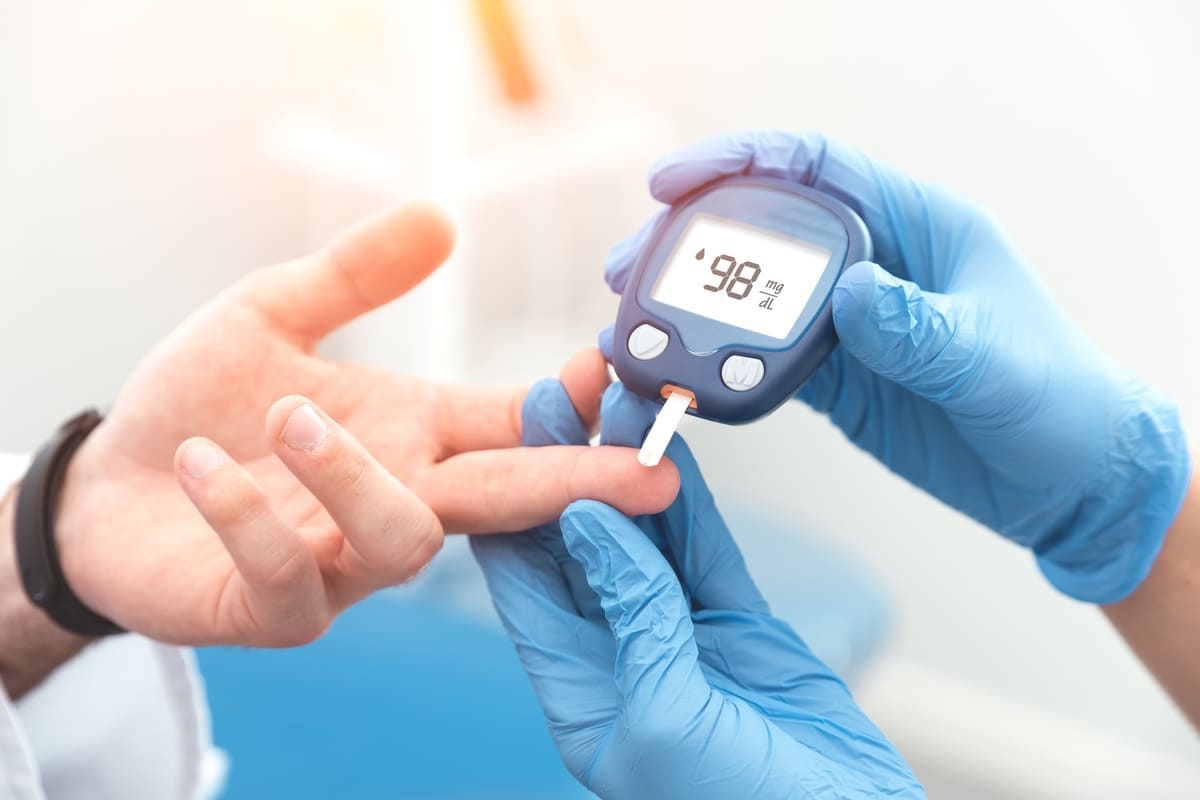
What is diabetes?
The symptoms of diabetes
First of all, we need to distinguish between type 1 diabetes and type 2 diabetes. Type 1 diabetes, also known as juvenile diabetes, is a form of diabetes that appears in childhood. It is caused by a malfunction of the cells responsible for insulin production. Thus, people with type 1 diabetes are forced to inject insulin throughout their lives to compensate for the body's low production.
Type 2 diabetes can occur in adulthood. It is often the result of a poor lifestyle that has been in place for many years. It results in sudden drops in blood sugar levels that prevent the body from producing insulin properly. As a result, the sugar stagnates in the blood and does not reach the cells. Because they don't get sugar, the cells send messages to the brain to get more. A vicious cycle is set in motion. This dysfunction causes you to consume more and more sugar, even though you don't need it because you have plenty of it in your blood. And this high blood sugar can seriously damage your red blood cells, arteries, kidneys and lungs. To limit the stagnation of sugar in the blood, it is the liver that will convert excess sugar into fat.
If you do nothing to change your lifestyle, type 2 diabetes can worsen. In addition to gaining weight, your liver may reach a point of no return, and no longer be able to convert sugar into fat. At this point, the fat seeps into the bloodstream, which can cause increased cholesterol and even irreversible damage to the kidneys, lungs, pancreas and cardiovascular system. Some people with type 2 diabetes may even be forced to take insulin injections, like people with type 1 diabetes, because of the damage to the pancreas.
Causes of diabetes
Type 1 diabetes is usually a genetic disease that occurs in childhood, but it can also be triggered by toxic exposure.
Type 2 diabetes is mainly caused by a poor lifestyle, including a diet high in refined carbohydrates and low in fiber and antioxidants. If you often overindulge in your diet, it can cause blood sugar levels to spike and fall, which over time leads to insulin resistance.
Treatment of diabetes
At this time, there is no cure for type 1 diabetes or type 2 diabetes. Medical treatment consists of regular control of high blood sugar levels and changes in eating habits. Healthy nutrition and some exercise are the keys to counteracting the adverse effects of diabetes. As explained earlier, some diabetics will need to take insulin for life. There are also medications available to promote insulin release and improve insulin sensitivity.
The benefits of CBD on diabetes
CBD regulates the appetite
The first factor in the onset of diabetes is bad eating habits: snacking between meals, excess sugar, and a lack of sports activity. Thanks to scientific studies, we know that CBD interacts with the endocannabinoid system. As a result, it regulates several essential functions of the body such as mood, pain, stress, mood, and appetite. Consuming CBD therefore helps to fight against eating disorders that are often the cause of diabetes.
By regulating appetite, CBD helps fight obesity, which is also a factor in the development of diabetes. To play its regulatory role, CBD acts on the brain's reward system and the hormones associated with hunger. In short, CBD helps you eat less, but more importantly, eat more healthily.
CBD promotes fat burning
Thanks to its antioxidant properties, CBD helps burn fat faster and eliminate toxins more quickly. By reducing the fat intake of ingested foods, CBD limits fat accumulation and weight gain.
According to scientific studies, CBD would be able to transform bad fat, also called white fat, into good fat, also called brown fat. Good fat burns calories faster and protects the body from heart disease and diabetes.
CBD contributes to a healthy pancreas
A recent scientific study was conducted on 4700 people with diabetes to analyze the link between CBD and insulin sensitivity. The results confirmed that taking CBD offers a 17% decrease in insulin resistance. In other words, CBD contributes to the good health of the pancreas and facilitates its work in producing insulin. If the production of insulin is sufficient, the blood sugar level remains under control, and the risks of developing diabetes are therefore reduced.
CBD protects the liver
When blood sugar levels rise and insulin no longer functions properly, it is the liver that converts the excess sugar into fat. Somehow, your body has to store the sugar that is stagnant in the blood to limit the damage. The problem is that the liver also has its limits, and it cannot convert sugars into fat over and over again. In the long run, the process damages the liver. This is called fatty liver disease or hepatic steatosis.
CBD helps to protect the liver from fatty liver disease. As the endocannabinoid system is activated to keep the liver in balance, the problem gets worse. Taking CBD regulates the endocannabinoid system and slows the progression of this disease, while effectively protecting the liver.
CBD soothes the symptoms of diabetes
In addition to preventing diabetes and protecting your body, CBD soothes the symptoms of diabetes. It reduces nerve pain, eases anxiety, limits skin conditions, promotes the healing process, and limits the urge to eat sugary foods. So even if you have type 1 diabetes and are forced to take insulin daily, CBD can provide support and improve your quality of life.
CBD promotes daily well-being
Beyond these direct effects on diabetes, CBD is a natural substance that promotes overall well-being. By fighting stress, anxiety and sleep disorders, CBD makes it easier for you to adopt a healthy lifestyle. It contributes to your good mental health, happiness, enthusiasm and good mood. There is nothing like a healthy mind in a healthy body to naturally enjoy good health.
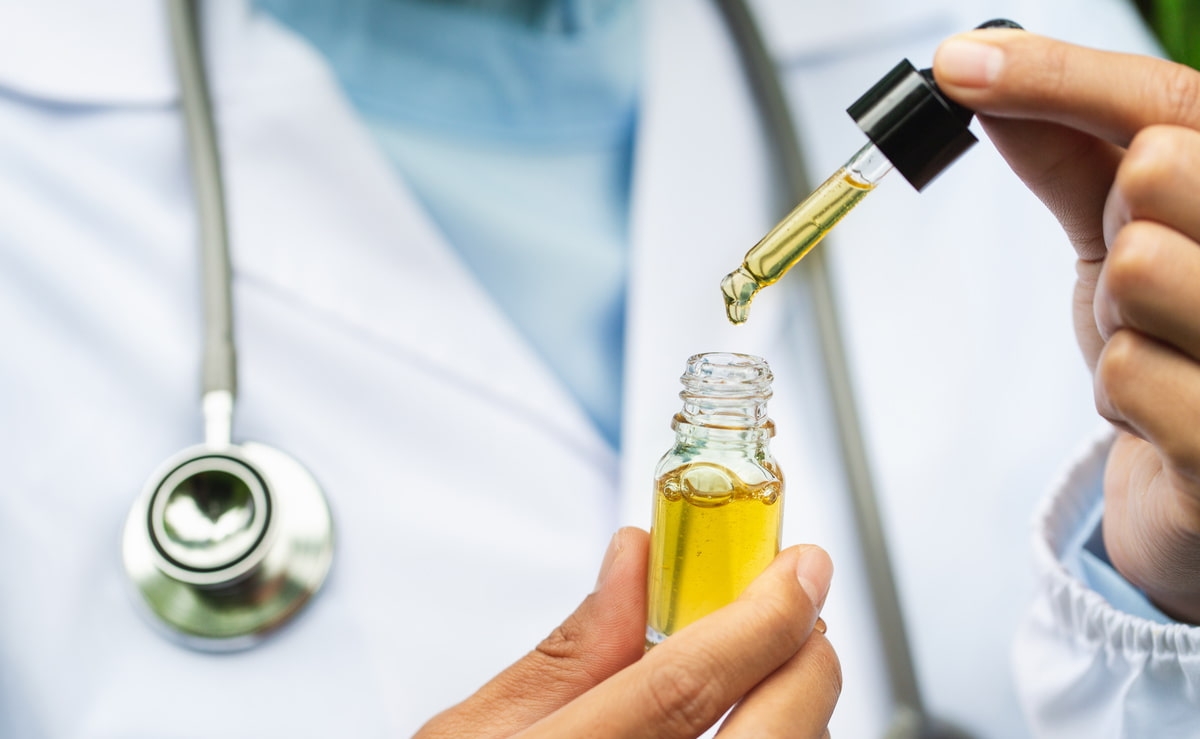
How does CBD work on the body?
All of the benefits mentioned above are intimately linked to the action of cannabinoids on the endocannabinoid system (ECS). It is important to know that the ECS is a system common to all vertebrates, discovered in the 1990s through the study of cannabis sativa plants. This scientific research brought to light the link between THC, CBD and the ECS.
In a few words, the SEC keeps your metabolism in balance. If there is an imbalance, CBD can fill in some of the gaps and regulate your metabolism by interacting with the CB1 and CB2 receptors in the SEC. CB1 are the receptors related to the central nervous system, lungs, muscles and intestines, while CB2 are the receptors related to the immune system, bones and skin. Even in cases of chronic pain, intense fatigue or anxiety, CBD helps your body maintain balance.
How to consume CBD to fight against diabetes?
Oral ingestion
CBD can be ingested orally. To do this, you can take ready-to-use CBD capsules or capsules. You can also crumble CBD flowers and resins to incorporate into your cooking and hot drinks. For example, CBD tea is an excellent solution to benefit from its multiple virtues. CBD oils can also be easily incorporated into your meals.
Sublingual ingestion
By the sublingual route, it is very simple. Just put a few drops of CBD oil or CBD crystals directly under your tongue. This way, the cannabinoids will be absorbed by the mucous membranes before reaching the bloodstream. A quick, easy and effective way to consume CBD, even if you have no experience with cannabis.
Inhalation
CBD resins and flowers can also be consumed through inhalation. To inhale your CBD products, you'll need a quality vaporizer to ensure a healthy, controlled smoke. No smoking, no burning: vaping has nothing but benefits to offer you.
Can CBD eradicate diabetes permanently?
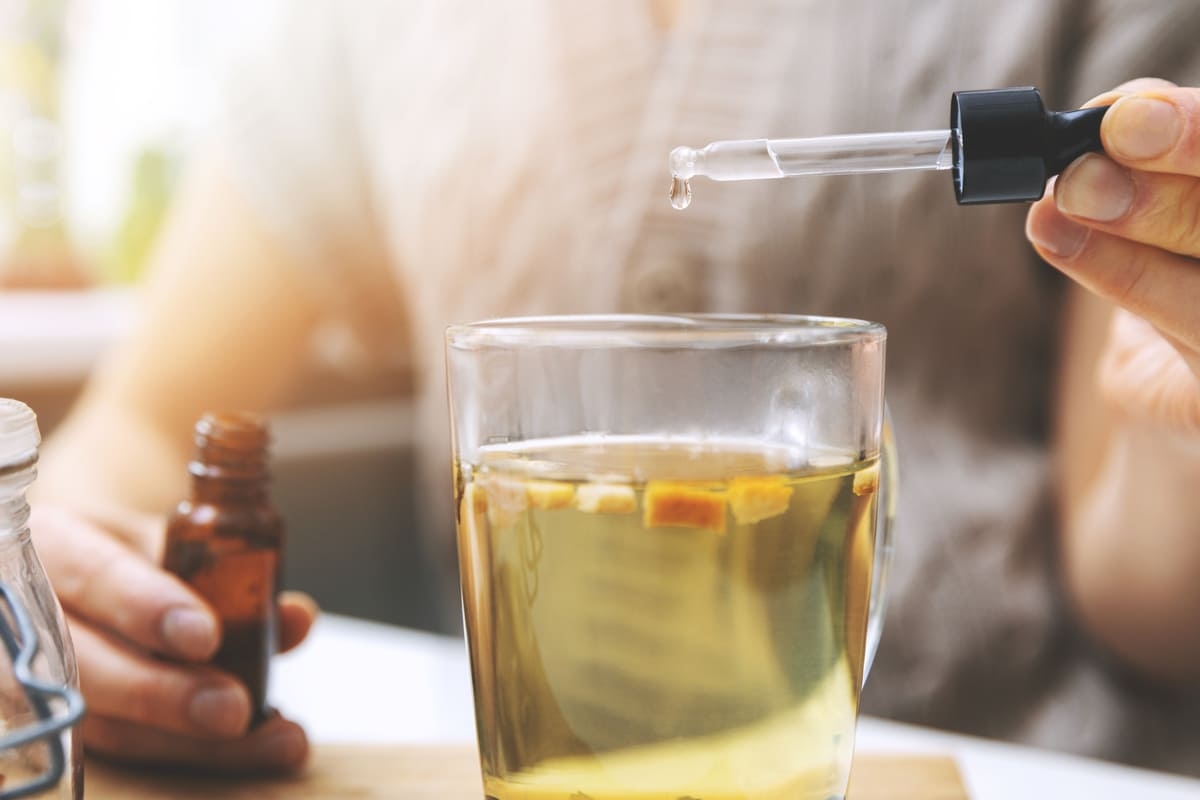
No, CBD cannot eradicate diabetes permanently, nor any other disease. It provides support, relief, regulation, and optimizes the healing process, but it cannot be taken as a medication for diabetes. At the moment, scientific studies on CBD are still ongoing. In a few years, we will surely have more feedback on its use and new cannabinoid-based treatments will probably be available. Although it is not yet considered a full-fledged treatment, it already helps relieve most of the symptoms of diabetes, prevent, and protect. These results are already very promising for the future!
Can CBD be consumed at any age?
Yes, CBD can be consumed at any age. Moreover, diabetes can affect young children as well as the elderly. There are no contraindications to its use at any particular age. That said, it always seems essential to seek the advice of a doctor before taking CBD, especially if you already have a parallel treatment. CBD itself is not likely to harm you, but in some cases it is not compatible with heavy medication.


